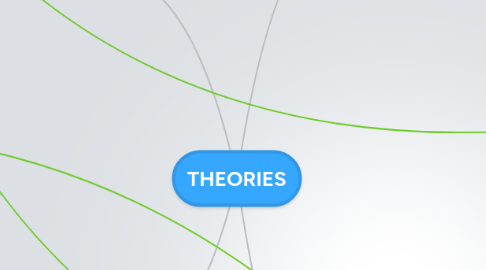
1. Technoloy Theories
1.1. SCOT
1.1.1. social constructivists of technology
1.1.2. human action determines technology
1.1.3. in order to understand technology, you need to understand how society defines it.
1.1.4. if technology isn't "the best", it will be altered and "fixed" according to what with work "best" with society
1.2. Media Ecology
1.2.1. technology influences people and dominates peoples' actions
1.2.2. learning is about communication
1.2.3. Currently in Electronic Era which defines our society
1.2.4. previous eras were tribal, literate, and print
1.2.5. we will never be isolated, but always connected through media
1.2.6. Implications for the classroom
1.2.6.1. learning from mediums
1.2.6.2. learning through communication via technology
2. Philosophy of Teachnology
2.1. as every teacher has a philosophy of teaching, they should also have a philosophy of teachnology
2.2. this is when a teacher has a philosophy of using technology in the classroom
2.3. teacher makes statements regarding their beliefs about using technology in the classroom
3. Learning Theories
3.1. Cognitivism
3.1.1. Response to behaviourism that challenges students as a "blank slate"
3.1.2. Short term memory, long term memory,and sensory memory
3.1.3. Prior knowledge is key to learning
3.1.4. build on schemas means you are learning
3.1.5. mind is analogous to a computer --> making connections with information
3.1.6. Implications for the classroom
3.1.6.1. practice makes perfect
3.1.6.2. repetition
3.1.6.3. textbook knowledge
3.1.6.4. use of advanced organizers, pneumatic devices,
3.1.6.5. taking notes
3.1.7. Cognitive Load Theory
3.1.7.1. data from the environment is taken into working memory. From here it can travel into long term memory. The individual can choose to take it from long term memory and bring it into working memory when it is needed.
3.1.7.2. Working Memory replaces Short Term Memory
3.1.7.3. brain can overload
3.1.7.3.1. too much information too fast
3.1.7.3.2. can only handle 7 disconnected items at once
3.1.7.4. 3 types of cognitive load: extraneous, intrinsic, germane
3.1.7.5. Implications for the classroom
3.1.7.5.1. use of chunking
3.1.7.5.2. repetition
3.1.7.5.3. organization of information
3.2. Constructionism
3.2.1. learning is constructed and built upon prior learning
3.2.2. prior knowledge influences incoming learning
3.2.3. if new information doesn't fit, it is accomodated
3.2.4. Implications for classroom
3.2.4.1. classroom projects
3.2.4.2. community projects
3.2.4.3. students become responsible for learning
3.2.4.4. collaboration of work
3.2.4.5. teachers assess how activity affects understanding
3.3. Connectivism
3.3.1. learning is the process of making connections and developing a network via technology
3.3.2. learning/knowledge exists in a diversity of people
3.3.3. need to nurture and maintain network to keep currency
3.3.4. Implications for Classroom
3.3.4.1. student choice in learning topics
3.3.4.2. student responsible for learning
3.3.4.3. allows for more differentiation
3.3.4.4. create own learning environment
